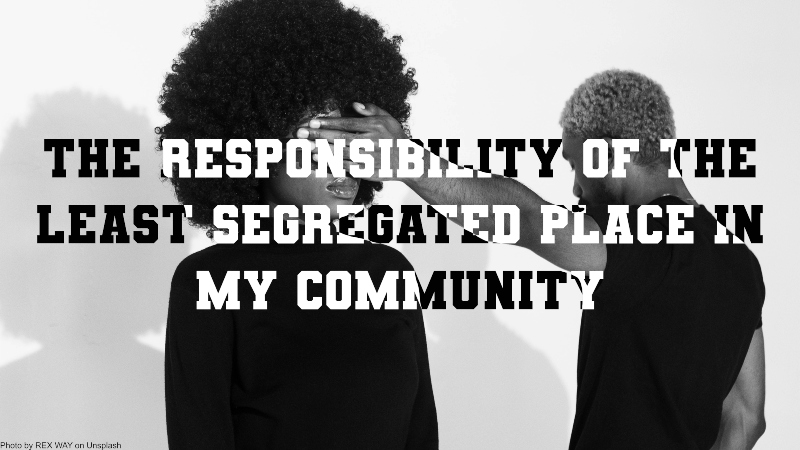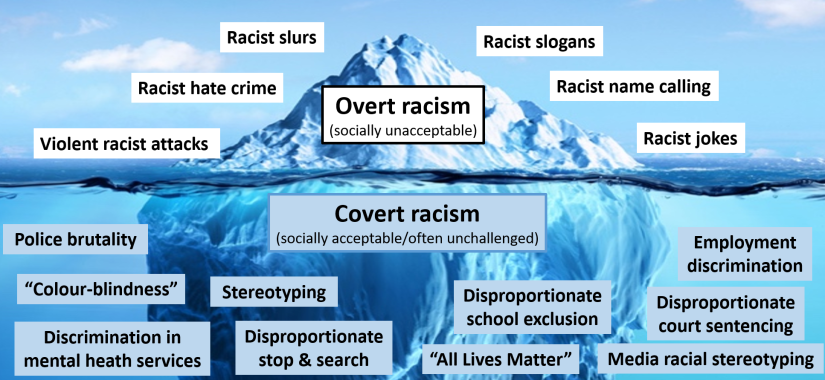The responsibility of the least segregated place in my community
'Our church's diversity charges us with a great responsibility. It means that we have a special and significant role in the struggle to bridge racial divides and work for justice.' By Jon Kuhrt

“I think it is one of the shameful tragedies of our nation that 11 o’clock on a Sunday morning is one of the most segregated hours in Christian America…any church that stands against integration, and which has a segregated body, is standing against the spirit and teachings of Jesus Christ.” Martin Luther King, 1960
What was true in 1950/60s America will also be true in many areas and churches today. But it's not the case where I live.
Diverse
The church I am a member of, Streatham Baptist Church, is one of the least segregated places in our South London community. We have members from over 50 different nations. I think we are more racially diverse than almost any other organisation in the local area.
Whilst this is something to celebrate, there is no room for any complacency. In fact, our diversity charges us with a great responsibility. It means that we have a special and significant role in the struggle to bridge racial divides and work for justice.
Diverse churches exist for such a time as this.
Fundamentally unifying
The Church is founded on beliefs which should be fundamentally unifying.
After all, firstly we believe everyone is created in the image of God and that all people are of infinite worth. Secondly, we believe everyone struggles, messes up and needs restoration and forgiveness. And thirdly, we believe everyone can find new life and redemption through Jesus Christ.
And this is not just theory. The Church is not a think-tank sharing good ideas: it exists to embody this message and live it out. As the New Testament puts it:
All this is from God, who reconciled us to himself through Christ and gave us the ministry of reconciliation (2 Corinthians 9:18)
This is why so many Christians love being in congregations which are multi-national and multi-ethnic: the diversity in itself reflects the vision of a kingdom of God where people from every tribe and tongue will come together.
Reality of racism
Since the killing of George Floyd and the Black Lives Matter protests, many people like me have learnt a lot more about the reality of racism. The main way I have learnt is by listening to the experiences of Black and Asian brothers and sisters in my church.
In a recent online sermon, our pastor, Chris Andre-Watson, told us about the time when he visited a church in the 1990s and heard someone say ‘God must have run out of white paint when he made him’. And he spoke about how the Police twice raided his home when he was at Bible College ostensibly searching for illegal drugs.
Anger and frustration
In the last few months our church men’s group has held sessions to listen to people’s experiences. Now across the whole church we are holding a series of ‘Listening assemblies’ on racial justice. Anger and frustration have been expressed, people have disagreed, at times sharply and painfully. But we believe these are the places we must go to if we are to make progress as a community.
In our discussions, we have used this model, adapted from Ben Lindsey’s excellent book We Need to Talk about Race:

Almost everyone agrees with the wrongness of the overt, obvious form of racism which is above the surface. The more complex and demanding aspect is to grapple with the covert forms of racism ‘below the water line’.
These often exist in systematic or structural forms: the racial inequalities which remain stubbornly embedded in education, law enforcement and health services. These are both more hidden and more controversial.
Admitting our blind spots
Some people struggle with the idea of systemic or structural injustice. They often want to reduce wrong-doing to just the personal sphere. But these forms of analysis downplay entrenched inequalities and tend to serve the status quo.
Whether or not you agree with Critical Race Theory, none of us should have an uncritical theory of racial injustice. We need to critique our attitudes and our blind-spots. Many of us accept the injustices of history but are reluctant to face up to how they impact the situation today.
My journey is still in its early stages but I am going to continue to listen to those who challenge and help me understand the realities of racism better. And I want to go beyond just listening, and take action which makes a difference.
Joshua Luke Smith expresses it better than anything I can write. Please watch this:
Jon Kuhrt works as a Rough Sleeping Adviser to the government specialising in how faith and community groups respond to homelessness, and is a member of Streatham Baptist Church. This reflection first appeared on his blog Grace and Truth, and is republished with permission.
Want to comment on this reflection? Please leave your thoughts via this contact form.
Some comments may be shared below.